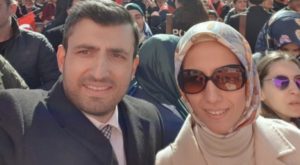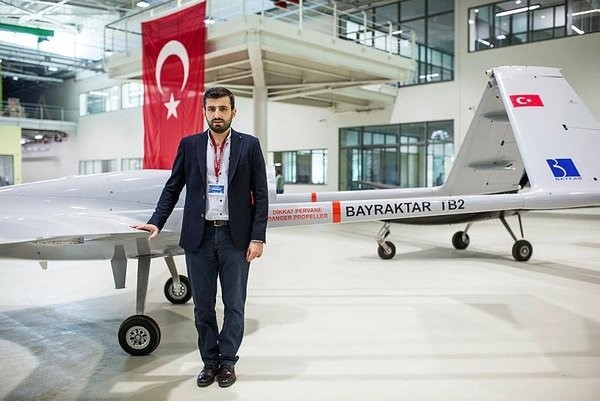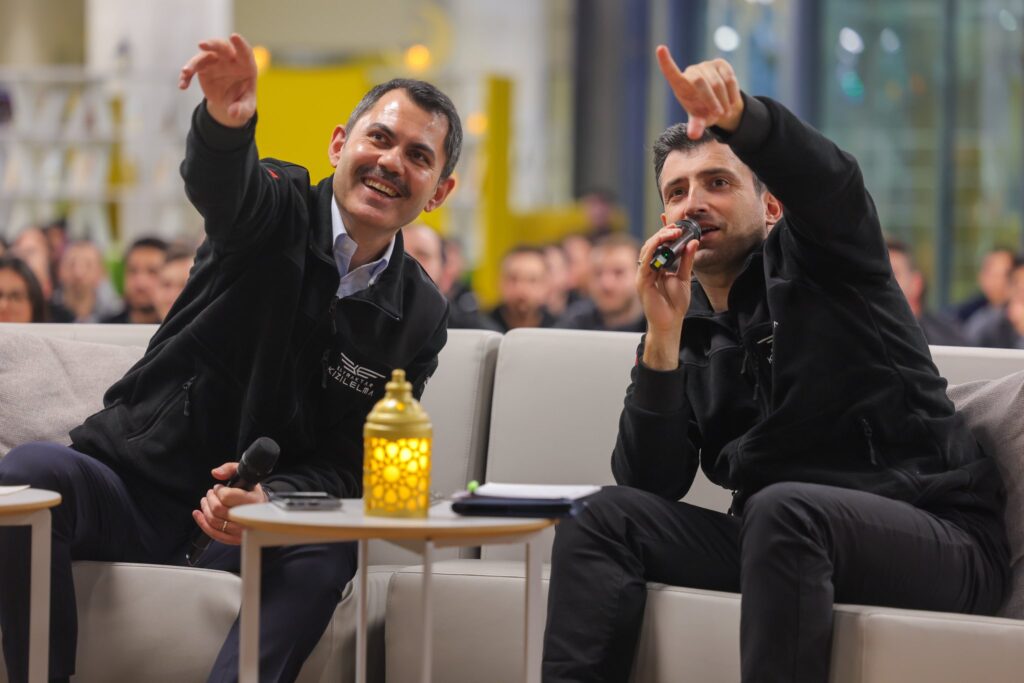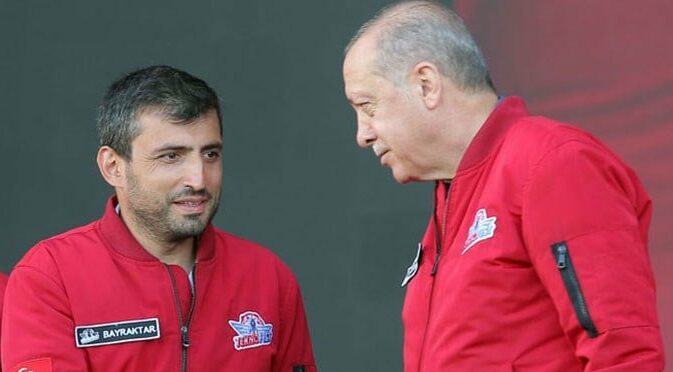Levent Kenez/Stockholm
Selçuk Bayraktar, the chairman of Baykar, a Turkish defense contractor, and also the son-in-law of Turkish President Recep Tayyip Erdogan, appears on Forbes’ latest billionaire list.
He is among the 27 Turkish billionaires who made it on to the prestigious list. Bayraktar’s net worth stands at $1.2 billion, securing him the 2,457th spot on the list. His brother, Haluk, who serves as CEO of Baykar, follows closely behind, ranking 2,612th with a net worth of $1.1 billion. The Bayraktar brothers’ wealth is reportedly attributed to their involvement in military drone production.
Selçuk Bayraktar has a majority share of 52.5 percent in Baykar, where he also holds the position of chairman and serves as the company’s chief technology officer. Meanwhile, his brother, Haluk, has a 47.5 percent stake in the company.
Established by their father Özdemir in 1984 to manufacture parts for the Turkish automotive industry, Baykar has seen significant growth. In 2022 the company recorded sales of $1.4 billion, and by 2023, its exports had soared to $1.8 billion, primarily driven by contracts secured with various militaries across Europe, Africa and the Middle East.
Baykar’s drones have been exported to over 30 countries and have been actively used in conflicts in Nagorno-Karabakh between Armenian and Azerbaijani forces in 2020 as well as Libya and Ukraine. Many credit the company’s success to the support of President Erdogan, who often promotes Baykar drones during his diplomatic visits abroad, resulting in multimillion dollar agreements.
Selçuk Bayraktar has been married to Erdogan’s daughter, Sümeyye, since 2016.

There is a strong public belief that the rapid increase in the wealth of the Bayraktar brothers and their attaining billionaire status at such a young age was greatly influenced by their familial ties to Erdogan. However, according to pro-government groups, Selçuk Bayraktar is regarded as a national hero.
Selçuk Bayraktar said on a television program in 2022 that Turkey’s drone and unmanned fighter jet projects would fail if there was no political backing, putting his support behind the current government before elections in 2023.
President Erdogan sees Baykar as a family business and markets its products in many countries, especially in Africa. It is no secret that Erdoğan, his family members and his business associates benefit immensely from the defense industry and military equipment sales. Baykar takes advantage of all state facilities but also earns high profits in the local and international market with the sale of weapons, for which the only decision-maker is Erdogan. An important reason for choosing Turkish drones is that Turkey does not have a long export approval process unlike the US and the European Union.
Military experts previously told Nordic Monitor that Bayraktar drones are a good product in the mid-range drone class but say they are not entirely made of indigenous parts as claimed, stating that imported products from various supply chains constitute critical parts. They also said the years-long experience and knowledge of the Turkish Armed Forces in drone projects now benefits Baykar. Experts claim that the Bayraktars cannot achieve the desired goals in areas with strong air defense systems but that it is an ideal weapon to use in the fight against terrorism.

Nordic Monitor previously reported that Bayraktar armed drones performed poorly in Libya and were an easy target for ground fire. According to a report submitted to the UN Security Council by the Panel of Experts on Libya on March 8, 2021, Bayraktar TB-2 armed drones “were easily destroyed in the air by the Pantsir S-1 air defense system,” which was supplied by the United Arab Emirates and later Russia.
The Ukrainians consider Bayraktar drones one of their most useful weapons in the war with Russia. The Ukrainian people even collected money among themselves to buy Baykar drones for the Ukrainian Army. Baykar announced in June that it would give three drones to Ukraine and wanted the donors to spend the money collected on humanitarian needs.
Jiří Šedivý, the former head of the Czech General Staff, suggested that Bayraktar TB2 drones encountered significant challenges from Russian anti-drone defenses in Ukraine.
In an interview with CZ Defence in March 2023, Šedivý said there was a conspicuous silence surrounding the Turkish Bayraktars, almost as if they had vanished from the battlefield. The last notable incident involving the Bayraktar was reportedly its interception by a Russian Su-27 fighter over the Black Sea, shortly after a similar aircraft had downed an American Reaper.
Turkey had been an important supplier of TB2 drones to Ukraine even before the start of the conflict. Šedivý suggested that the once-revered Bayraktars had essentially been rendered obsolete, largely due to the Russian utilization of electronic systems to neutralize UAVs.
Selçuk Bayraktar and his family are criticized for the government’s alleged lack of attention and support for drone projects of other private and public companies. Additionally, Baykar drones earn millions of lira daily through government leases and guaranteed flight hours.
Remzi Barlas, who was the director of the engineering team producing Turkey’s first unmanned aerial vehicle, ANKA, at Turkish Aerospace Industries (TUSAŞ), was fired, accused of “espionage,” and detained for two months. In 2023 he claimed that the public interest had been undermined to pave the way for Baykar, and he also shared details of other drone projects being terminated on the government’s orders.

Selçuk Bayraktar recently hosted Murat Kurum, the ruling party’s candidate for Istanbul mayor, at his factory. Additionally, he arranged a gathering of employees to rally support. However, despite these efforts, Kurum lost the election by a significant margin.












